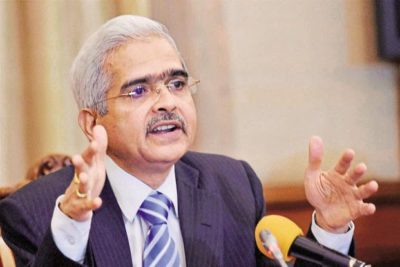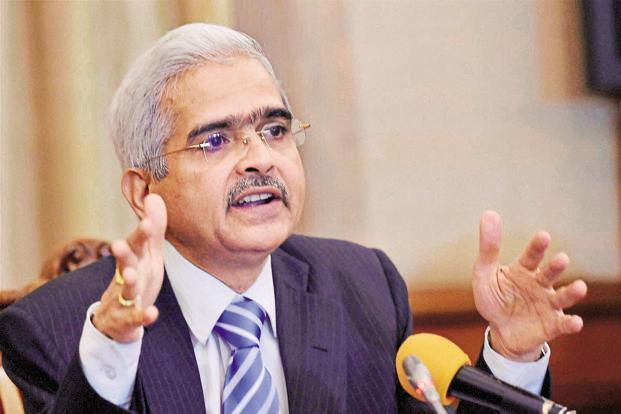
Uncertain times ahead
- August 26, 2019
- 0
Uncertain times ahead, RBI governor Shaktikanta Das
The general government debt of AEs as a group has surpassed 100 per cent of gross domestic product (GDP), whereas the fiscal space is also constrained in many of these countries
 The global economy is moving into a “new and unsettling phase” where “solutions are turning more difficult to come by” in an environment of stressed trade negotiations, rising geopolitical confrontation, and limited policy space and high debt levels in several economies, Reserve Bank of India (RBI) Governor Shaktikanta Das said on Friday.
The global economy is moving into a “new and unsettling phase” where “solutions are turning more difficult to come by” in an environment of stressed trade negotiations, rising geopolitical confrontation, and limited policy space and high debt levels in several economies, Reserve Bank of India (RBI) Governor Shaktikanta Das said on Friday.
This has a negative connotation for emerging markets (EMs), as these are building up excessive leverage because of the low interest rates in the advanced economies (AEs). This is especially true in the absence of a strong global safety net such as currency swap arrangements between the AEs and the Ems.
The general government debt of AEs as a group has surpassed 100 per cent of gross domestic product (GDP), whereas the fiscal space is also constrained in many of these countries, the governor said at the launch of a book (India’s Relations with the International Monetary Fund) in New Delhi.
“The global order today faces several challenges that will test the skills of the international organisations as well as those of national monetary and fiscal authorities,” the governor stated, adding, “International coordination has become somewhat weaker in the very recent years. Many AEs have been pursuing low interest rate policies for long without perhaps adequate recognition of their adverse impacts.”

The RBI governor rued the fact that at the global level, $13 trillion of debt, or nearly a third of the bonds issued by advanced economies, was trading at negative yields. Equity premium has crossed 4 per cent, which is 1 standard deviation higher than its long-term average.
“Return to lower interest rates in AEs poses challenges as leverage has already built up in the EMs and the needed deleveraging is not complete in many European economies,” the governor said.
Amid low global interest rates, total credit to the non-financial sector in the EMs went up from 107.2 per cent of GDP at the end of 2008 to 194. 4 per cent of GDP by March 2018, before it dropped to 183.2 per cent at the end of 2018. Net private capital flows to EMs in the form of direct and portfolio investments also nearly doubled in the post-crisis period, according to the RBI governor.
“This has posed risks to some Ems.
Some of these risks have surfaced in the form of weak bank/non-bank balance sheets and some remain latent and can surface, especially when the global interest rate cycles turn decisively,” Das said in his speech.
“The world will be looking to the IMF to suggest dependable solutions. The EMs on their part need to follow policies that promote macroeconomic and financial stability, while focusing on growth,” he said.
EMs no longer face only balance of payments crisis, but the nature of the shock has changed to a full-blown crisis. After the financial crisis of 2008-09, and quantitative easing thereof, the EMs and their markets have received huge funds because of a global spillover, but this has “amplified both sudden surges and sudden stops or reversals of capital flows”, he said.
Here, the governor stressed the need for a robust global safety net. “The existing state of financial safety nets, regional or multilateral, falls grossly short of providing the necessary buffers against such turbulence. Moreover, access to swaps from systemically important central banks is not available to the EMs. For many EMs, high fluctuations in currency movements have pronounced macroeconomic consequences,” the RBI governor said.
नए और अस्थिर चरण की ओर बढ़ते हुए वैश्विक अर्थव्यवस्थाः RBI गर्वनर
भारतीय रिजर्व बैंक (आरबीआई) के गवर्नर शक्तिकांत दास ने कहा कि वैश्विक अर्थव्यवस्था ‘नए और अस्थिर चरण’ की ओर बढ़ रही है जहां ‘इसका समाधान बहुत ज्यादा कठिन’ होने जा रहा है। उन्होंने कहा कि कारोबारी बातचीत में दबाव के माहौल, भूराजनैतिक टकाराव बढ़ने और कुछ अर्थव्यवस्थाओं में कर्ज ज्यादा होने और सीमित नीतिगत अवसर होने के कारण कठिनाई ज्यादा है।
उभरते बाजार वाली अर्थव्यवस्थाओं (ईएमई) के लिए यह नकारात्मक है, क्योंकि विकसित अर्थव्यवस्थाओं (एई) में कम ब्याज दर के कारण इन्हें बहुत ज्यादा ढील देनी पड़ रही है। विकसित व उभरते बााजारों की मुद्रा के लेन देन में मजबूत वैश्विक सुरक्षा संजाल न होने के कारण ऐसी स्थिति है।
विकसित अर्थव्यवस्थाओं में समूह के रूप में सामान्य सरकारी कर्ज सकल घरेलू उत्पाद के 100 प्रतिशत से ऊपर चला गया है, जहां राजकोषीय संभावनाएं भी इन तमाम देशों में बहुत कम है। नई दिल्ली में ‘इंडियाज रिलेशंस विद द इंटरनैशनल माॅनेट्री फंड’ नामक पुस्तक के विमोचन के मौके पर गवर्नर ने यह कहा।
गवर्नर ने कहा, ‘इस समय दुनिया कुछ चुनौतियों से गुजर रही है, जिसका असर अंतराष्ट्रीय मौद्रिक और राजकोषीय प्राधिकारियों पर भी पड़ेगा।’ उन्होंने कहा, ‘हाल के वर्षों में अंतरराष्ट्रीय तालमेल कमजोर हुआ है। तमाम अगड़ी अर्थव्यवस्थाएं कम ब्याज दर वाली नीतियों पर जोर दे रही हैं और संभवतः उनके विपरित प्रभाव पर पर्याप्त ध्यान नहीं दिया जा रहा है।’
रिजर्व बैंक के गवर्नर ने कहा कि हकीकत यह है कि वैश्विक स्तर पर 13 लाख करोड़ डाॅलर या अगड़ी अर्थव्यवस्थाओं की ओर से जारी एक तिहाई बाॅन्ड नकारात्मक मुनाफे में चल रहे हैं। इक्विटी प्रीमियम 4 प्रतिशत पार कर गया है, जबकि इसके दीर्घावधि औसत की तुलना में मानक विचलन ज्यादा है।
गवर्नर ने कहा, ‘विकसित अर्थव्यवस्थाओं में कम ब्याज दर पर मुनाफे को लेकर चुनौतियां नजर आ रही हैं।’
वैश्विक ब्याज दरें कम होने के बीच ईएमई में गैर वित्तीय क्षेत्र में कुल कर्ज 2008 में जीडीपी का 107.2 प्रतिशत था, जो मार्च 2018 तक जीडीपी के 194.4 प्रतिशत पर पहुंच गया है, जबकि इसके पहले 2018 के अंत में यह कम होकर 183.2 प्रतिशत था। दास ने कहा कि प्रत्यक्ष एवं पोर्टफोलियो निवेशों के माध्यम से ईएमई में शुद्ध निजी पूंजी प्रवाह संकट की अवधि के बाद करीब दोगुना हो गया है।
उन्होंने भाषण के दौरान कहा, ‘इससे कुछ ईएमई के लिए जोखिम की स्थिति हो गई है। इनमें से कुछ को कमजोर बैंक/गैर बैंक बैलेंस सीट से जूझना पड़ रहा है जबकि कुछ की ऐसी स्थिति बनी है, जो जल्द ही सामने आ सकती है, खासकर जब वैश्विक ब्याज दरों का चक्र निर्णायक रूप से बदलेगा।’ उन्होंने कहा, ‘दुनिया आईएमएफ की ओर देखेगी कि वह कुछ विश्वसनीय समाधान पेश करे। ईएमई को ऐसी नीतियां लानी होंगी , जो व्यापक अर्थव्यवस्था और वित्तीय स्थिरता को समर्थन दें, जबकि वृद्धि पर मुख्य रूप से ध्यान रहे।’
ईएमई को न सिर्फ भुगतान संकट के संतुलन से जूझना होगा बल्कि पूर्ण संकट के झटकों से भी सामना होगा। 2008-09 के वित्तीय संकट के बाद ईएमई और उनके बाजारों को बड़ी मात्रा में फंड मिला, लेकिन इसमें अचानक तेजी और अचानक रोक या पूंजी प्रवाह उलटा होने जैसी स्थिति आई। गवर्नर ने जोर देकर कहा कि ऐसी स्थिति में तेज वैश्विक सुरक्षा संजाल की जरूरत है।
दास के मुताबिक ईएमई ने वैश्विक उथल पुथल का असर कम करने के लिए अपना कोष बढ़ाया है, इसके बावजूद इस बात के संकेत हैं कि वित्तीय संकट का जोखिम कोष की तुलना में ज्यादा है।






























































